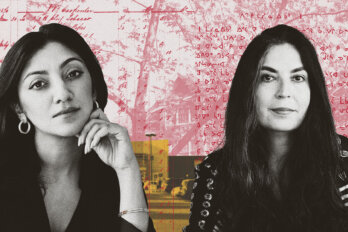What literature needs most is a new and abusive school of criticism. So wrote Rebecca West in 1914, in an essay called “The Duty of Harsh Criticism.” Book reviewers were too kind, she argued, and literary standards debased. English departments were remarkable only for the shocking amounts of unreadable writing they produced. Then there was the “formidable army of Englishmen” who had managed to become men of letters without having written anything: “They throw up platitudinous inaugural addresses like wormcasts, they edit the letters of the unprotected dead, and chew once more the more masticated portions of history.” There is now no criticism in England, she concluded. “There is merely a chorus of weak cheers . . . a mild kindliness that neither heats to enthusiasm nor reverses to anger.”
It’s hard to believe West’s essay appeared ninety years ago; what is striking about reading it today is how familiar it sounds. How often have we read articles decrying the unreadability of contemporary English professors? Judith Butler, winner of the 1998 Bad Writing Contest, judged by the academic journal Philosophy and Literature, is only one of several recent high-profile examples. Perhaps there aren’t quite as many inaugural addresses as there were in West’s time (although we may just have replaced them with television book-chat panels). But with that exception, all of West’s complaints will be familiar to anyone who follows contemporary literary debate, as will her central claim that critical discussion is deadened by “the vice of amiability.”
West’s article diagnosed an enduring problem. The essay-review was in part a discussion of The Passionate Friends by H. G. Wells – which she did not enjoy – and in terms of fearless criticism, she may have set an unsurpassable standard. Not only was the author of The Invisible Man one of the most prominent writers of the era, but he and West had recently begun a romance, one that would go on for ten years.
Now seems an especially good moment to recall West. We are once again debating the value of harsh criticism. The current debate was set off by the American critic Dale Peck’s notorious assault on Rick Moody. Peck wrote a review in The New Republic in 2002 that began with the now infamous sentence, “Rick Moody is the worst writer of his generation.” The ensuing controversy has triggered widespread discussion, including a high-profile counterblast by Heidi Julavits, who, writing in The Believer, held Peck up as an example of “snark,” or mindlessly negative reviewing. Counter-counterblasts have since appeared in The New York Times and across the blogosphere. The subject is sure to receive renewed attention with the imminent publication of Hatchet Jobs, a collection of Peck’s essay-reviews.
The pieces are uniformly merciless. Rick Moody, Peck writes, is not merely the worst writer of his generation; he “has never put together a single sentence that I would call indispensable.” The gentlest moment in Peck’s review of the American writer Stanley Crouch is when he damns Crouch for a “mixed metaphor of . . . bland grandiosity.” The critic Sven Birkerts is lambasted for sentences that “grow simultaneously more turgid and cliché-ridden,” a stylistic habit, Peck goes on to inform us, that “serves to obscure the fact that [Birkerts] is for all intents and purposes talking out of his ass.”
We can all agree that mixed metaphors and cliché are to be avoided. But few critics come down on them with the savagery Peck does, for the obvious reason that we all have our lapses – including, it turns out, Peck himself. For him, reviewing Crouch’s work “is like shooting fish in a barrel.” When he approached Moody’s book, he assumed reviewing it “would be easier than shooting fish in a barrel.” (Perhaps Birkerts does use stock phrases a touch too often; but at least he has the decency to mix them up a bit.) Peck may also want to rethink his habit of ferociously denouncing mixed metaphors even while declaring that his goal as a critic is to “hack away at the dead wood in order to discover the heart of the novel.” When it comes to the war against cliché, it’s not hard to portray Peck himself as something of a conscientious objector.
What appeal Peck has no doubt derives from his utter lack of amiability. Outspoken criticism remains as rare in our time as it was in West’s. The reason became clear to me when I worked in the books section of the National Post. Part of my job involved calling up writers and asking them to write reviews. I enjoyed getting to know many talented authors, but I couldn’t help but be struck by a common occurrence. Often, I’d say something along the lines of, “Why don’t you tell me what kind of books you’re interested in, and I’ll keep you in mind if I see any?” Nine times out of ten the writer would reply, “I’ll tell you what kind of book I don’t want to review: Canadian literature.”
We would then politely lie to each other: he would offer some perfectly implausible explanation for why he didn’t review Canadian fiction, and I would pretend to take it seriously. One Toronto novelist told me it was because his tastes were so narrow: “I would spend all my time saying why Michael Ondaatje’s dialogue isn’t as good as mine.” An author from British Columbia told me she didn’t want to review domestic fiction because she wasn’t sure “how much of it is any good”– a strange remark from someone who is herself a Canadian writer, and one whose name I often see on the backs of Canadian novels, underneath happy blurbs about how finely written they are.
The real reason these writers didn’t want to review their peers was that it’s a small community. The most honest ones would come out and admit as much: writing a negative review could hurt them in the future, either at grant time (many grant juries are composed of writers) or when one of their own books was sent out for review. The least honest would turn down opportunities to re-view – and then publish articles or give interviews in which they called for higher standards in book reviewing. Reading them, I would begin composing e-mails in my head:
Dear ——:
Read your piece in The Globe today. In your honour, I’ve had T-shirts made up with your picture on them:Back:
I am a direct cause of literary mediocrity.
Front:
Ask me about hypocrisy.
Talk soon!
Andy
Other literary editors invariably recount similar experiences. (“The poets are the worst,” one British editor told me, rolling his eyes.)
This perennial backdrop of squeamishness and careerism explains why criticism of the sort West called for exerts such an enduring appeal. The chief attraction of a good adventure in harsh criticism was captured in G. K. Chesterton’s remark that while a dead thing can go with the stream, only a living thing can go against it. Reading a critic like Rebecca West, we are brought into contact with a free and independent mind, one that forces us to re-examine the received ideas and inflated reputations that are a constant part of literary discourse.
If West is any guide, though, so far the debate about reviewing has been short-sighted. We don’t just need honest, fearlessly written criticism; although we unquestionably need that. We need critics who aspire to artistry as well. West was more than simply fearless; the true brilliance of “The Duty of Harsh Criticism” was in the way it demonstrated, rather than merely announced, the standards to which good writing should aspire. This fact explains how it is that Wells’s novel has faded into obscurity, while West’s essay is not only still in print, but a source of enduring inspiration.
Elvis Costello once said writing about music is like dancing about architecture. His point concerned the difficulty, if not impossibility, of capturing the essence of a work of art while working in another form altogether. The alternative, with all due respect to Costello, may be even harder. Book reviewers are unique in the arts in that they work in the same medium as the artists they are judging. Unlike a dance or architecture critic, a book critic has the potential to outperform the artists he or she is discussing.
No doubt this is what Dale Peck sees himself doing. Alas, Peck is no Rebecca West. The first virtue of West’s criticism is that it lives up to the same standards it sets for others. Peck, by contrast, personifies little more than theatricality. On a deeper level, he ultimately seems an unintentional caricature of an out-spoken and provocative voice such as West. His essays are animated not by a spirit of fearless honesty, but by a self-conscious desire to be scathing – whether or not he is persuasive, or even coherent. Hence Peck’s dismissal of the entire “bankrupt tradition” of twentieth-century letters: “a tradition that began with the diarrheic flow of words that is Ulysses; continued on through the incomprehensible ramblings of late Faulkner . . . and finally broke apart like a cracked sidewalk beneath the weight of the stupid – just plain stupid – tomes of DeLillo.” This passage records not a series of thoughts, but empty spasms. “Snark” may be an unfortunate and imprecise term, but Heidi Julavits was unquestionably right to object to criticism that amounts to little more than angry insults.
Are there any critics today who bear comparison to West? Can we still produce reviewers who not only eschew amiability for forthrightness, but write with such power that they instruct by example? The critic who comes most readily to mind is James Wood, whose own forthcoming book, The Irresponsible Self, gathers together his articles from The New Republic and London Review of Books, essay-reviews that are often exercises in harsh criticism of the sort West called for.
Certainly Wood has inherited West’s fearlessness. Whereas Peck’s favourite target is a mid-list title by an author working outside his normal genre (a novel by Stanley Crouch, who normally writes non-fiction, or a historical memoir by a novelist Moody), Wood consistently re-examines the reputations of writers with large international readerships: Norman Mailer, Martin Amis, or Jonathan Franzen. For every author who does meet Wood’s standards, such as Saul Bellow, there are countless more – Salman Rushdie, Thomas Pynchon, Don DeLillo, Zadie Smith – who do not (and still others, such as J.M. Coetzee and Alistair MacLeod, who fall somewhere in between).
It must be said that Wood’s frequent disappointment with contemporary writing is in noticeable contrast with his respectful appreciation of Virginia Woolf and other canonical authors. Sometimes the contrast is a little too noticeable. As Leon Wieseltier, Wood’s editor at The New Republic, once wrote of another harsh critic, “he cannot abide the inconclusive condition of culture in the present, which is always the condition of culture in the present – it leaves him too exposed to art’s elements, too unprotected by opinion, too much at the mercy of his eye and his mind. Instead, he wants the reading of masterpieces by towering figures – a certified experience of art.” The gap between Wood’s disdain for the contemporary and his rapture before the canon is so conspicuous, there are moments when one wonders if what excites his pulse is not great writing, but the shiver of canonicity itself.
Still, for the most part, Wood’s appeal derives not merely from the fact that he is often critical, a quality he shares with Peck, but from the fact that he is so consistently and brilliantly convincing. Wood may have written a novel of uneven quality, but his criticism derives its authority from its artistry. Like West, Wood is at his most effective when he embodies the very possibility he finds lacking in the book under review. To choose but one example, critics of the literary essayist George Steiner frequent-ly state that his writing is marred by pomposity. Rather than merely produce another review repeating the charge, Wood writes that Steiner approaches his material with such solemnity, it is as if, on every outing, Steiner sees himself as “leading a coup to restore a monarch to the throne.” The image expresses the very quality absent in Steiner, namely, a sense of humour.
“The writer-critic, or poet-critic,” Wood has written, “has a competitive proximity to the writers she discusses. That competition is registered verbally. The writer-critic is always showing a little plumage to the writer under discussion.” Reading this, Rebecca West would purr with appreciation. What she and Wood share most is an awareness that criticism is itself merely another sub-category of writing. The shadowy boundary between creator and critic is why so many writers are reluctant to write criticism to begin with. But this interchangeability of writers and critics is also why not only Wood, but every other critic mentioned here—West, Peck, Julavits—has published novels. It is the same reason we have seen such a longstanding and intense debate over critical standards, stretching as far back as West’s time if not beyond, a debate with no equivalent among critics of dance or architecture. Only in the literary realm are the greatest critics most likely to be impassioned practitioners.
But if criticism is merely another genre of writing, then the duty of harsh criticism does not amount to the claim that critics are obliged to be scathing above all. Their challenge is instead the same one that all writers face: the struggle to place on the blank page words that are true. And that duty is already harsh enough.





